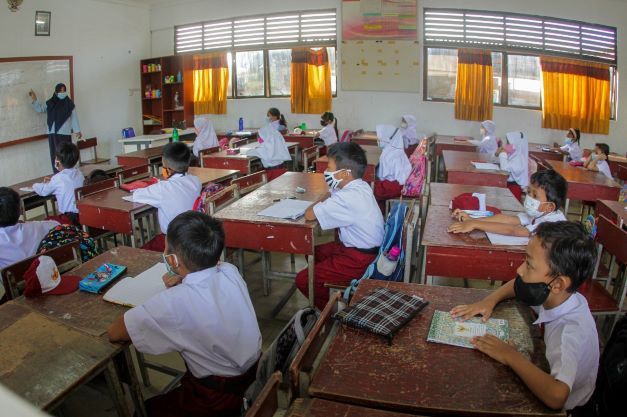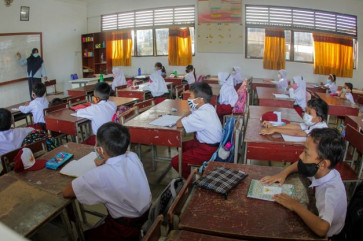Popular Reads
Top Results
Can't find what you're looking for?
View all search resultsPopular Reads
Top Results
Can't find what you're looking for?
View all search resultsCurriculum 2024 and the changing role of teachers
While all stakeholders should welcome the new curriculum, it will not succeed unless the deep-seated, conservative mindset of Indonesian education can be changed.
Change text size
Gift Premium Articles
to Anyone
T
he Education, Culture, Research and Technology Ministry recently announced a plan to launch Curriculum 2024. Ahead of its implementation, schools across the country can trial the prototype curriculum at the start of the new school year in July.
The new curriculum has been designed to improve the quality of learning and offer some contingencies for dynamic teaching and learning during these unprecedented times. Anindito Aditomo, the head of the ministry’s Educational Standards, Curriculum and Assessment Agency, said the new curriculum aimed to transform schools into a safe, engaging and meaningful space for learning.
Some of the main characteristics that feature in the new curriculum, according to Anindito, is a primary focus on competency rather than content. To achieve this aim, teachers and students will be spending more time during the learning process in discussions, question-and-answer sessions and giving feedback. Students will also participate in debate, team activities and negotiation to try and resolve issues that are relevant to their environment.
While the idea is brilliant and deserve our support, the plan may face some obstacles in its implementation, considering the nature of Indonesian classrooms and the deep-seated mindset that needs challenging. In this regard, teachers, parents, schools and other stakeholders and agencies play a vital role in making sure that the new curriculum works.
Engaging, interactive learning as suggested by the new curriculum is not something new, especially in English language classes. Communicative language teaching (CLT), competency-based language teaching (CBLT) and task-based language teaching (TBLT) share similar features, and they are used in English language classes in Indonesia, or at least their implementation has been attempted.
However, a 2008 study conducted by the late Maraden Marcellino, a linguistics lecturer at Atma Jaya Catholic University in Jakarta, revealed that Indonesian classrooms may not be ready for such methods. The new curriculum demands that students be independent and teachers switch from being authoritative agents to being facilitators.
Maraden also said that cultural factors, such as students’ social and ethical values and beliefs, did not suit interactive, engaging activities in the classroom. His study found that many Indonesian students showed total obedience to teachers, had unquestioning minds and shared the belief that their elders know best and teachers can do no wrong. These characteristics prevented them from participating actively in classroom discussions. Their fear of being “in the wrong” and being embarrassed for making a mistake or saying something “incorrect” could discourage students from speaking up.



















